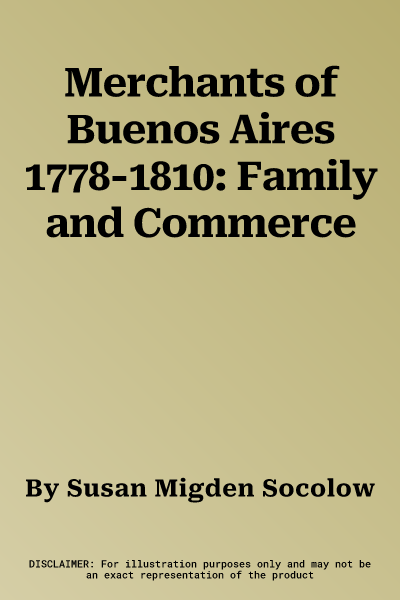Susan Migden Socolow
(Author)Merchants of Buenos Aires 1778-1810: Family and CommerceHardcover, 31 January 1979

Temporarily out of stock
Free Delivery
Cash on Delivery
15 Days
Free Returns
Secure Checkout

Part of Series
Cambridge Latin American Studies
Part of Series
Cambridge Latin American Studies (Hardcover)
Print Length
272 pages
Language
English
Publisher
Cambridge University Press
Date Published
31 Jan 1979
ISBN-10
0521218128
ISBN-13
9780521218122
Description
Product Details
Author:
Book Format:
Hardcover
Date Published:
31 January 1979
Genre:
Latin America
ISBN-10:
0521218128
ISBN-13:
9780521218122
Language:
English
Location:
Cambridge
Pages:
272
Publisher: